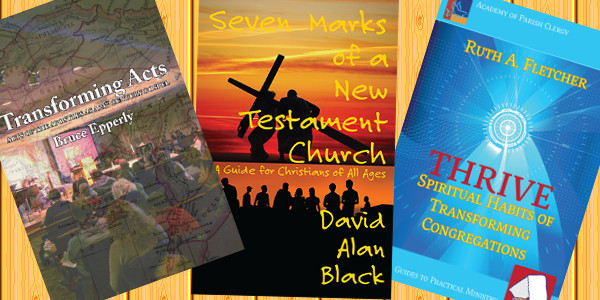Links and Notes on Textual Criticism

Jeremy Myers at Redeeming God has an interesting post on textual criticism (HT: Thomas Hudgins). Myers is comparing the textual commentaries written by Bruce Metzger (with input of the UBS committee) and Philip W. Comfort. It’s fun to watch the critical scholars disagree!
If anyone believes I consider that a negative comment on critical scholars, let me disabuse you of that notion. It is, instead, a comment on the texts and sources we have to work with. The reason we have disagreements is not that scholars are somehow stupid or unnecessary, but rather that the evidence is, in fact, complex and requires serious study. Often there isn’t enough evidence to come up with any real conclusion. Where I would criticize critics, and in fact any biblical scholar, is in making conclusions that imply evidence that is better than they have or are likely to acquire.
When attempting to make the evidence solidly in favor of one conclusion, Christian apologists like to spend their time talking about the New Testament. Why? Because the New Testament evidence is much clearer. Not necessarily clear, but clearly than that for the Hebrew scriptures (or Old Testament). You have an abundance of New Testament manuscripts that tends to put most issues into pretty strong consensus territory. Such is not the case for the Old. We have, in many cases, just enough evidence to suggest that there is a great deal we’d like to know but lack the evidence to study. Looking at the differences between the Septuagint and the Massoretic Text, for example, suggests many possibilities, but leaves us without a detailed trail of evidence to study.
There are a number of responses to this complexity. We can give up on knowing what scripture teaches. We can decide that the inspiration of scripture operates in very different ways. Or perhaps we can think that the Holy Spirit guides people in the church (and out of the church, for that matter) as they study, and that God doesn’t mind that we come to different conclusions.
I choose the latter, and apply this to various higher critical methodologies as well as textual criticism. The details are fun to study, but we don’t have to settle all the details in order to be followers of Jesus. We don’t have to settle all the doctrinal issues in order to be followers of Jesus. Yes, it’s fun, and I think even useful to study all those things, but settling them is not necessary. God can guide you when you study your English (or other native language) Bible as well as he can study me when I read Hebrew, Aramaic, or Greek. Maybe even better, for all I know.
Because I believe that inspiration resides in God’s actions in history and that one of those actions was the production of scripture (yes, scripture in its various debated forms), I think it’s still useful to study everything about the text, from its prehistory to it’s canonical state, to it’s dissemination and variety of translation. I don’t believe God resides at just one point. I may hear from God as I apply source criticism to Genesis, for example, seeing two different creation stories and looking at them independently. I can also hear from God when I see those as combined into the larger volume of the book of Genesis and the Pentateuch as a whole. I can still see God when I look back at that creation story from the perspective of the New Creation which is in Christ Jesus.
When I read scripture in this fashion, debates about inerrancy and historicity tend to fade into the background as I hope to listen to every echo of God’s voice in the texts I have using whatever means I have to dig out that echo.
I’m an Amateur Radio operator (KT4B for those who care). I remember when I was in my teens how I would try to contact different parts of the world. It was nice to do so using a reasonably high powered (200 watt at the time) transceiver and a directional antenna on a tower 50 ft high. I could hold conversations with people on the other side of the world if I did the work right. Sometimes, however, things didn’t work so well. Careful listening and careful sorting through the interference could still get a message through.
I remember once operating from Georgetown, Guyana (WB4BUQ/8R1 at the time) and trying to contact a station in Iceland that was using just 200 mW of power. To qualify for the award he was seeking we had to be able to exchange a certain amount of information and then verify the contact via mail. In normal conversation it would take less than 30 seconds. Using Morse Code and his low power station it took close to a half an hour.
The information was of no value to me or to him, other than to confirm the effort and its success. But there was great growth in my skills (I don’t know about his) to be gained simply from the effort.
That is my view of digging into the shadowy, difficult details of scripture. It’s a learning process. It doesn’t really matter whether I come to the same conclusion as you do. I’ve spent time searching for and looking at the echoes of God’s work, and that is enough to justify the effort.
